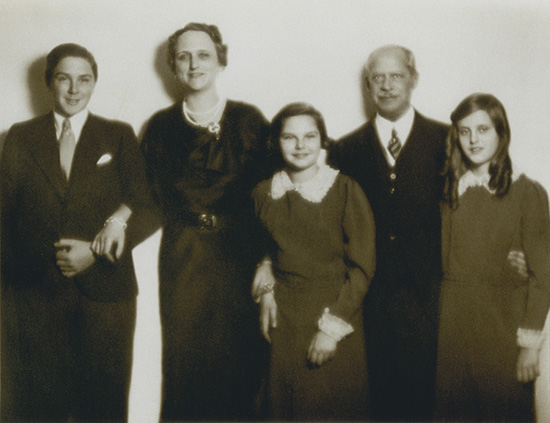Nazi-Looted Family Treasures on Display at MFA
Recent Rothschild gifts to museum on view in US for first time

This past February, the art world was buzzing with the news that a collection of priceless paintings, drawings, jewelry, furniture, rare books, and other items owned by one of Europe’s most prominent families—once feared lost to the Nazis—was being donated to the Museum of Fine Arts Boston.
Now 80 of the 186 items donated by heirs of Alphonse and Clarice de Rothschild of Vienna can be seen in a dazzling exhibition at the MFA titled Restoring a Legacy: Rothschild Family Treasures. Included are an exquisite platinum and diamond necklace/tiara dating from 1920, featuring nine pear-shaped diamonds; a spectacular Art Deco platinum, emerald, and diamond clip-brooch, ca. 1937; and a late 19th-century pearl and diamond necklace. A series of ornately decorated jeweled and enameled boxes as well as books dating back nearly 400 years are also on view. For anyone who loves bling, this show is essential viewing.
The items donated to the MFA are just a fraction of the 3,500 art objects the Nazis confiscated from the Rothschilds during the Anschluss in 1938, when the Third Reich annexed Austria to Nazi Germany. At the time, the collection was considered one of the greatest in the world, reflecting what came to be known as le goût Rothschild (the Rothschild taste). The confiscated items—many personally selected by Hitler for inclusion in his planned Führermuseum—were moved to salt mines west of Vienna as the war intensified. Because of their value, they were well cared for.
After the war, the family embarked on a decadeslong effort to recover the collection. By the late 1940s, they were able to reclaim some, but not all, of the collection, and they were forced to “donate” 250 of the best works to the Austrian government in order to export the rest of their collection. In the late 1990s, the Austrian government finally began returning the 250 pieces to the family, and scores of those were later sold at auction. Many of the 186 items donated by the Rothschilds to the MFA were among those retained by the Austrian government following the war.

One painting in particular gives eloquent testimony to the strange and circuitous history attached to the collection. Titled A Dordrecht nobleman on horseback with retainers and grooms, the back of the painting—visible to viewers—bears the inventory numbers that mark each time the painting was moved, from 1938 when the Nazis seized it to its return to the Rothschilds nine years later.
The MFA was bequeathed the family treasures thanks in large part to Bettina Burr, a granddaughter of Alphonse and Clarice de Rothschild and a trustee of the museum. Burr told the Boston Globe earlier this year that she and her mother had “both agreed that it would be a good thing” to donate the works to the museum rather than have them divided up in private collections where they would remain hidden.
Visitors have just a few weeks left to see this extraordinary show before it closes. It’s an unforgettable experience and a reminder of the ongoing battle to restore to its rightful heirs art plundered by the Nazis.
Restoring a Legacy: Rothschild Family Treasures is on view at the Museum of Fine Arts, 465 Huntington Ave., Boston, through Sunday, June 21. The museum is open Mondays, Tuesdays, Saturdays, and Sundays from 10 a.m. to 4:45 p.m. and Wednesdays through Fridays from 10 a.m. to 9:45 p.m. Admission is free for members or students with a BU ID; $25 for adults; $23 for seniors and students 18 and over; free for children ages 6 and under; free for youth 7 to 17 on weekdays after 3 p.m., on weekends, and Boston public school holidays (otherwise $10). The museum is free to the public on Wednesday evenings. Take an MBTA Green Line E trolley or the number 39 bus to the Museum of Fine Arts stop or the Orange Line train or bus routes 8, 47, or C2 to the Ruggles stop.
Comments & Discussion
Boston University moderates comments to facilitate an informed, substantive, civil conversation. Abusive, profane, self-promotional, misleading, incoherent or off-topic comments will be rejected. Moderators are staffed during regular business hours (EST) and can only accept comments written in English. Statistics or facts must include a citation or a link to the citation.